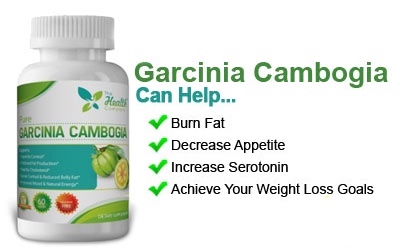 Just a few short decades ago, there wasn't much question in the minds of most Americans: milk is good for people, and we should drink it every day. Today, you're likely to find a much different attitude when you start asking people what they've heard or what they believe about the health benefits of dairy. In fact, many people go so far as to hold that it is actually bad for people.
Just a few short decades ago, there wasn't much question in the minds of most Americans: milk is good for people, and we should drink it every day. Today, you're likely to find a much different attitude when you start asking people what they've heard or what they believe about the health benefits of dairy. In fact, many people go so far as to hold that it is actually bad for people.
Why Is Milk Good for You?
Those who feel that it's important to drink milk cite the following reasons:
- Cow milk is an excellent source of calcium, and some experts believe that ingesting a certain amount of dairy can decrease a person's risk of developing osteoporosis and fractures.
- Potassium Good sodium-potassium ratios are critical to keeping blood pressure at healthy levels, and many people today ingest too much sodium (salt) and not enough potassium.
- Vitamin D is provided in fortified milk, and people who don't drink dairy are often deficient in this important nutrient.
What's to Debate?
All of the above reasons for ingesting dairy seem like great ones. The problem is that not everyone, even the experts, can agree on whether the health benefits of consuming dairy routinely are real. Many also believe that there are risks to having dairy regularly that outweigh the benefits.
Those who feel that dairy isn't as good for people's health as it was once thought often mention the following:
- Humans are the only animals who drink milk outside of infancy and the only ones who drink the milk of a different species. This indicates to some that consuming dairy is unnatural for humans.
- About 75% of the world's population is lactose intolerant after infancy, also indicating that consuming dairy may not be natural for us.
- Dairy products have been suspected by some to increase the risk of heart disease because they contain saturated fats.
Are these observations and evaluations correct, and do they indicate the need to eliminate dairy products from your diet to achieve good health? Let's take a look at studies done on each of the above points.
Humans Are the Only Animals to Drink Milk as Adults
It's true that other animals don't drink milk as adults. The milk of cows is specifically used in nature to nurture growing calves, not sustain human adults. In fact, humans didn't start out consuming dairy; that didn't begin until the agricultural revolution.
Still, studies have found that some humans have evolved to be able to break down dairy (Curry, 2013) products due to a genetic mutation that occurred around 8000 years ago which allows people to produce lactase (the enzyme that breaks down lactose) throughout adulthood rather than only in infancy. So, while it may not have started out as a "natural" thing, it appears as though it has become so for a segment of the population.
Many People Are Lactose Intolerant
What about the people who have not inherited the genetic mutation that allows for the consumption of dairy products in adulthood?
This gene appears to have appeared in northern Europe and is still most prominent there and in North America and Australia (Curry, 2013). Lactose intolerance is more common in other areas of the world.
People who are lactose intolerant may have painful gas, bloating, vomiting, and diarrhea after consuming dairy products and they are likely to wish to avoid eating them.
Some people also have allergies to components in milk, which is a separate issue from lactose intolerance.
Can Dairy Products Increase the Risk of Heart Disease?
Science hasn't completely unraveled the links between saturated fats and heart disease. However, the trend is moving towards a belief that sugar is far more responsible than fat for increasing the risk of heart problems.
In fact, many new studies indicate that drinking full-fat milk from grass-fed cows can actually significantly decrease a person's risk of heart problems (M Bonthuis, 2010). Low-fat milk did not have the same effect, and milk from cows fed diets other than grass may not, either.
Alternatives to Dairy
If you are lactose intolerant, have an allergy to some other component of milk, or simply prefer not to consume dairy, there are some alternatives that can help you fill in the nutritional gaps that forgoing milk may leave in your diet. These include:
- Soy Milk
- Hemp Milk
- Almond Milk
- Rice Milk
- Coconut Milk
It's important to note that none of these alternatives provides the exact nutrient profile as dairy milk. Calcium and protein levels are often lower, and other nutrients like potassium differ as well. Some of these products are fortified with calcium or other nutrients, bringing them closer to being true dairy alternatives. Compare the nutrient profile of the product you are considering to dairy to make a determination.
Be sure to read the ingredients to ensure that you aren't getting added sugar or other sweeteners with these products.
You can also replace the nutrients in milk by eating a balanced diet rich in vegetables, fruits, nuts, legumes, seeds, and whole grains. Your doctor can help you determine if your diet is adequate or refer you to a nutritionist if you need help.
Fermented Dairy Products
If you wish to add even more health benefits to your daily dose of dairy, use a fermented product like milk kefir or yogurt. These products have all of the healthy components of milk plus they contain probiotics, which are extremely beneficial to many aspects of health. You can take a look at "Maintain a Healthy Gut for Healthy Weight Loss" and "Stress and Digestion" to learn more.
Bottom Line on Dairy
While science will continue to explore this issue and, no doubt, learn more and refine recommendations, what we know at this time seems to indicate that consuming full-fat dairy from grass-fed cows is healthy as long as you are not lactose intolerant or allergic. Talk to your doctor for specific recommendations for your individual situation.
Works Cited
- Curry, A. (2013, July 13). Archaeology: The milk revolution. Retrieved from nature.com.
- M Bonthuis, M. C. (2010, April). Dairy consumption and patterns of mortality of Australian adults. Retrieved from nature.com: DOI: 10.1038/ejcn.2010.45.
You May Also Like These Articles/Recipes:
Acidity, Alkalinity, and Cancer
Are Green Smoothies Dangerous?
Can You Lose Weight by Eating Spicy Food?
Garcinia Cambogia: The Smart Way to Enjoy the Holidays


